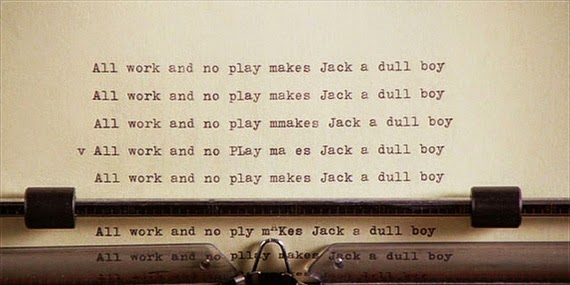I think about Paris when I’m high on red wine.
I wish I could jump on a plane.
And so many nights I just dream of the ocean.
God, I wish I was sailing again.
If you read my last couple of entries here you know I have been struggling to get some mo on my WIP. This week I finally realized I needed something drastic to kick me out of my funk.
So I took a cue from that great Western philosopher Jimmy Buffett and changed my latitude to change my attitude.
I didn’t get on a plane and go to Paris. But I did take a boat to work.
Normally, I work at home, migrating from sofa to chaise to bed with Acer in tow. But I was feeling closed in and my story was reflecting that. So I stuck the laptop in a backpack, put on clean clothes, combed my hair and slapped on enough makeup so I wouldn’t scare the horses and left the condo.
I live in downtown Fort Lauderdale on a river. A couple days ago, the city started up a free water taxi service. So Saturday, I took the boat to my local Coffee Place With Green Mermaid Logo. I got a cappacino, switched off the Wifi and opened Word. In two hours, I wrote 956 words. And most of them were keepers.
Today, I am back. And as soon as I finish this blog post, I am back to chapter twenty-two. And you know what? For the first time in weeks, I am eager to get to work.
Maybe you are one of those writers who thrive on routine and quiet. God bless you. I envy you. But I can’t do it. I don’t have set hours and I seem to produce my best work when I am in a strange place, preferably with the white noise of hissing espresso machines or bar Musak. But I had gotten in the habit of staying at home and it had resulted in a bad case of story stall.
We all have times when we get stuck in neutral, when our mind-wheels are mired in mud or spinning fast and going nowhere. Yeah, we can call it writer’s block, as this
New Yorker article does:
Writing is a nerve-flaying job. First of all, what the Symbolists said is true: clichés come to the mind much more readily than anything fresh or exact. To hack one’s way past them requires a huge, bleeding effort. For anyone who wonders why seasoned writers tend to write for only about three or four hours a day, that’s the answer. Anthony Burgess…concluded that a writer can never be happy: “The anxiety involved is intolerable. And…the financial rewards just don’t make up for the expenditure of energy, the damage to health caused by stimulants and narcotics, the fear that one’s work isn’t good enough. I think, if I had enough money, I’d give up writing tomorrow.”
But I think writer’s block is a luxury of literary types. If you write for the commercial market, you can’t afford to wait for the muse to come around every couple years. My story stall and my move to coffee shop got me to thinking about all the ways we can use to un-stick ourselves. I’ll bet you guys have some good tips to add.
Change Your Habits or Habitat
Getting dressed and going to a coffee shop has forced me to treat my writing as more of a job. I also have eliminated all the distractions and excuses of home: dogs, full laundry basket, TV, husband, unfinished crossword puzzle. If you work at home now, go somewhere else. Do you write only in the morning? Try a shift to the afternoon. I know life intrudes (kids, day job, night classes). But even a small change in routine can make you feel renewed.
Switch Point of View
Not just your own, but your narrator’s. When I started my WIP, I envisioned the entire story from my female protag’s POV as she is pursued by a male investigator. But once the guy came on stage, he started stealing the story. I fought him for nine chapters before I realized his story was equally as compelling as hers. In fact, their storylines paralleled thematically. I switched to a dual protag and the story took off.
Simplify Your Plot
There is an urge, when you’re new at novel writing, to use all your best ideas in one book. Maybe it’s because we feel if we don’t, we will never get a second chance. Usually, a simple linear plot works best. (Which is not to say you don’t have complications, obstacles, setbacks, etc.) Two folks in my critique group were wrestling with confusing tangled yarn-ball narratives that overwhelmed their characters. One writer realized he had TWO books in one and has now excised one plot line for a sequel. The other writer realized she was trying to graft an international thriller plot onto what is, at heart, a lovely Romeo and Juliet mystery. Once she jettisoned the over-done thriller elements, the characters began to shine.
Pick a Different Point of Entry
The writer’s saw states, “get into a scene as late as possible.” I’d say that applies to your overall story. As James, Jodie and others have said here often, the optimum moment to begin your story is just before the stuff hits the fan. If you have too much set-up, all the reader “hears” is you clearing your throat. If you come in too late, you can risk losing any chance to build tension. Do you have a prologue? Try cutting it out. I bet you won’t miss it.
Click here to read Joe Moore’s useful post on prologues.
Write Your Book’s Back Copy
Lack of focus is one of the biggest reasons for story stall. If you don’t know WHAT YOUR STORY IS ABOUT, how can you know where it is going? I’m not talking about plot points; I am talking about the big picture, the main drama and the stakes, your character’s arcs, and the theme. If you can’t boil your book’s essence down to one sharply written paragraph of about five sentences, I’m betting you don’t have a handle on what you are trying to say. I wrote about this at length a while back.
Click here to see tips.
Print Out Your Chapters
It’s scientific fact that looking at a computer screen changes the way our brains work. Print out your pages and read them like a reader. And here’s another twist: Format your chapters in single space, justified, Times Roman, so it looks as close to a real book as possible. I did this once and my problems with pacing and back story jumped off the page. Also, “typesetting” it breaks your mental image of your WIP, taking it out of “rough” draft (I’m struggling!) to “real” book. (Wow, not as bad as I thought.)
Speed Write
This is something I do in my workshops: I give students an opening line and make them write as fast as possible for ten minutes. Sure, it might produce junk, but more often than not, they come up with interesting stuff. Set a kitchen timer or your iPhone and just let it flow fast and furious. You will surprise yourself. Consider it a creative colonic.
Quit While You’re Ahead
This one’s from Ernest Hemingway: “The best way is always to stop when you are going good and when you know what will happen next. If you do that every day you will never be stuck. Always stop while you are going good and don’t think about it or worry about it until you start to write the next day. That way your subconscious will work on it all the time. But if you think about it consciously or worry about it you will kill it and your brain will be tired before you start.” Caveat: This does not work for me. I must finish and light up my metaphoric ciggie.
Get an Imaginary Dog
This is something I know a lot about: Not writing is like not sleeping. It does no good to lay there at 3 a.m. and stare at the glowing digital clock. Likewise, staring at the blinking curser won’t unblock you. Get out and go for a walk. Wordsworth wrote many of his poems on the move. Nietzsche claimed to have made all his philosophical insights while walking, and Kierkegaard wrote, “I have walked myself into my best thoughts.” Walking is something of a luxury in our go-go world. But science has documented the relationship between walking and thinking, that the rhythm of the body seems to free the mind. The ancient sages even had a phrase for it: Solvitur ambulando. “It is solved by walking.” So walk, don’t run. No iPod. Leave early and take the dog.
Get Some Imaginary Kids
We are Writers (capital W). But sometimes it’s good to go lower case and remember we are first storytellers. In our quest for the perfect sentence, the lovely phrase, the big idea, we often get in the way of our stories. Did your parents or teachers ever read to you? Remember how enthralling it was? John Steinbeck once wrote about being stalled: “Pretend that you’re writing not to your editor or to an audience or to a readership, but to someone close, like your sister, or your mother, or someone that you like.” If you get stuck, imagine you are sitting around a campfire telling a good story to some kids. Would you open with a prologue full of back story? Would you start with some confusing dialogue? No, you’d do something like this: “Every night, before he turned off the light, Jamie would get down on his hands and knees and look under his bed. There was never anything there except the dust bunnies. But on the night of his thirteenth birthday, when he picked up the edge of the bedspread, he saw something he had never seen before.”
Stop Writing
I know, I know. This sounds counter-intuitive. It smells of defeat. But I think we sometimes just need to give ourselves a break and take a break. Maybe your break is only for a day or a week. Maybe it needs to last over a good vacation. Maybe, like I had to do at one time, you need to take a couple months off. The world won’t end. Your WIP will still be there when you go back. But don’t buy into this notion that you MUST write every day. I’ll give the last word to Hilary Mantel:
“If you get stuck, get away from your desk. Take a walk, take a bath, go to sleep, make a pie, draw, listen to ¬music, meditate, exercise; whatever you do, don’t just stick there scowling at the problem. But don’t make telephone calls or go to a party; if you do, other people’s words will pour in where your lost words should be. Open a gap for them, create a space. Be patient.”
I like that. Be patient. With your writing and with yourself.





